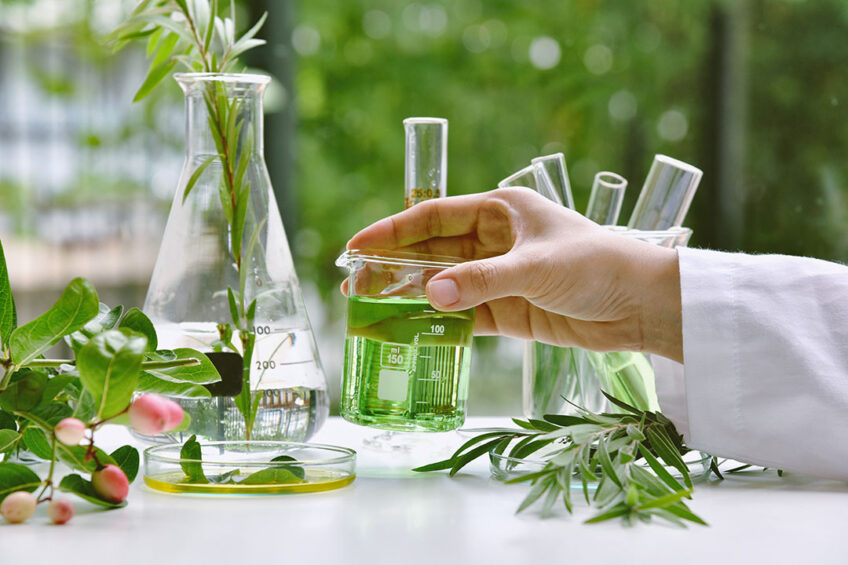Introduction to Essential Oil Extraction from Herbs: A Comprehensive Guide

Essential oils, known for their aromatic and therapeutic properties, are concentrated plant extracts widely used in various industries. The process of extracting these oils from herbs involves several methods, each with its advantages and considerations. In this comprehensive guide, we will explore in detail the most common methods of extracting essential oils from herbs.
-
Steam Distillation: The Traditional Approach
Overview: Steam distillation is one of the oldest and most widely used methods for extracting essential oils from herbs. This technique is particularly effective for plants with high oil content.
Procedure:
- Harvest fresh herbs at their peak to ensure maximum oil content.
- Crush or chop the herbs to expose more surface area.
- Place the crushed herbs in a still or distillation apparatus.
- Steam is passed through the plant material, causing the essential oils to evaporate.
- The steam, carrying the essential oils, is then condensed back into a liquid.
- The essential oil, being lighter than water, floats on the water’s surface and is separated.
Considerations:
- Proper equipment, including a still and condenser, is crucial for efficient steam distillation.
- The quality of the essential oil depends on factors such as the plant material’s freshness and the distillation process.
-
Cold Pressing: Ideal for Citrus Oils
Overview: Cold pressing, also known as expression, is commonly used for extracting essential oils from citrus fruits. This method is suitable for fruits with oil-containing glands in their peel.
Procedure:
- Collect ripe citrus fruits and manually or mechanically extract the peel.
- The peel is then pressed to release the essential oil.
- The oil is separated from the expressed juice and other components.
Considerations:
- Cold pressing is a simple and efficient method, preserving the oil’s quality and fragrance.
- It is essential to use fresh and ripe fruits to obtain higher oil yields.
-
Solvent Extraction: A Versatile Technique
Overview: Solvent extraction involves using a solvent, such as hexane, to dissolve the essential oil from the plant material. This method is suitable for plants with delicate aromatic compounds.
Procedure:
- The plant material is soaked in the solvent, allowing it to dissolve the essential oils.
- The resulting mixture, containing the dissolved oils, is then separated from the plant material.
- The solvent is evaporated, leaving behind the concentrated essential oil.
Considerations:
- Solvent extraction is versatile and applicable to a wide range of plant materials.
- Care must be taken to ensure the complete removal of the solvent from the final product.
-
Enfleurage: A Historic Method
Overview: Enfleurage is an ancient method primarily used for extracting essential oils from delicate flowers. While less common today, it has historical significance in the perfume industry.
Procedure:
- Petals or flowers are placed on a layer of fat or oil to absorb the essential oils.
- Over time, the plant material is replaced with fresh ones until the fat is saturated with the aromatic compounds.
- The fat is then treated to separate the essential oil.
Considerations:
- Enfleurage is a time-consuming process and is not as widely used due to its inefficiency.
- It is reserved for flowers with fragile aromatic constituents.
-
Carbon Dioxide (CO2) Extraction: Advanced Technology
Overview: CO2 extraction is a modern and advanced method that uses carbon dioxide as a solvent. This method is highly efficient and allows for the extraction of a wide range of plant compounds.
Procedure:
- Carbon dioxide is pressurized to become a supercritical fluid.
- This fluid is then passed through the plant material, extracting essential oils.
- The CO2 is depressurized, reverting to a gas and leaving behind the concentrated essential oil.
Considerations:
- CO2 extraction is a precise and environmentally friendly method.
- It is suitable for extracting a broad spectrum of plant compounds.
Factors Influencing Essential Oil Extraction:
- Plant Material Quality:
- Harvesting herbs at their peak ensures maximum oil content and quality.
- Equipment Quality:
- The choice of distillation apparatus, press, or extraction equipment significantly impacts the extraction process.
- Temperature and Pressure:
- Maintaining optimal temperature and pressure during extraction is crucial for preserving the aromatic compounds.
- Storage and Handling:
- Proper storage of both plant material and extracted oils is essential to maintain quality.
- Safety Considerations:
- Certain extraction methods involve the use of flammable solvents, requiring strict safety measures.
Conclusion: Choosing the Right Method
In conclusion, the choice of essential oil extraction method depends on various factors, including the type of herb, the desired oil, and the intended use. Whether employing traditional steam distillation, cold pressing, solvent extraction, enfleurage, or modern CO2 extraction, each method has its unique advantages and considerations. By understanding these methods and factors influencing extraction, one can make informed decisions to obtain high-quality essential oils from herbs.
This comprehensive guide provides an in-depth exploration of essential oil extraction, empowering enthusiasts and professionals alike with the knowledge to embark on this aromatic journey.









